Australia should still be concerned about World Vision
Despite World Vision's denials, there is ample evidence that convicted aid worker Mohammad El Halabi did indeed funnel money to Hamas.
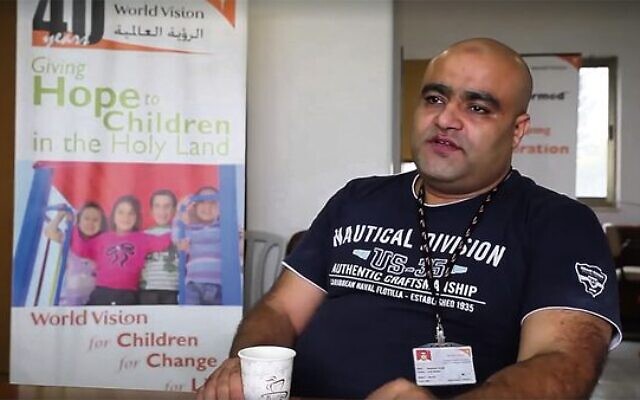
Last year, a civilian court in Israel convicted and sentenced Mohammad El Halabi, a former employee of the large evangelical aid organisation World Vision, of diverting funds to the terrorist group Hamas.
World Vision has stood by its man, and the scant coverage of the episode largely followed the organisation’s talking points – criticising the Israeli court system for excessive secrecy and uncritically mentioning outside audits supposedly exonerating World Vision. Much of this reporting concerning El Halabi is wildly misleading.
This is not the first time World Vision has landed in hot water over its involvement with terrorist organisations, nor is it the first time the organisation has gone to great lengths to obfuscate and continue business as usual. This ought to concern Australians. It was the theft of Australian funds that first brought this issue to the forefront. Moreover, Australian officials have played prominent roles, both in calling out this problem, and in defending World Vision’s bad actions.
The first instance of World Vision paying terrorists with Australian money occurred in 2012 when it was caught funding the Union of Agricultural Work Committees (UAWC), a front for the Popular Front for the Liberation of Palestine (PFLP), a proscribed terrorist group in Australia and other countries. World Vision claimed it was merely funding an innocuous Israeli NGO with a similar name, but this proved to be false. Despite the spirited denial by World Vision Australia’s Tim Costello, several counter-terror NGOs repeatedly warned World Vision that they were working with a terrorist organisation. In response to these challenges, Costello said, “You need to get your hands dirty to do good work.”
The evidence that UAWC was a PFLP arm was overwhelming and explained repeatedly, in private and in public, to World Vision officials, who not only ignored it, but attacked those who informed them.
World Vision also partnered with another PFLP affiliate, the Palestinian Children and Youth Institution, headed by the openly declared PFLP operative Khaled Yamani. This has never been fully investigated though clear evidence of World Vision’s work with the institution still exists online.
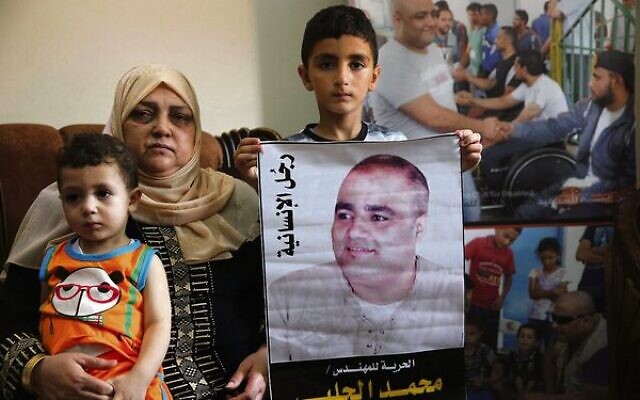
Yet another major World Vision scandal involved Islamic Relief Agency (ISRA), an Islamist charity in Sudan designated as a terrorist entity for funding one of Osama bin Laden’s organisations as well as Hamas. Caught red-handed paying ISRA with US dollars, World Vision lobbied to keep the relationship going for fear of getting kicked out of Sudan.
Following a series of articles published by two Middle East Forum investigators, Sam Westrop and myself, the US Senate Finance Committee produced a scathing report chastising World Vision’s behaviour as “borderline negligent” and “ignor[ing] elementary level investigative procedures” in vetting ISRA. The committee voiced its reservations concerning World Vision’s ability to avoid similar situations because:
“World Vision’s posture during and after this episode gives the impression they have externalised the responsibility for vetting the groups and organisations with which they choose to affiliate.”
The audit itself was never released: not to the public, nor even to the court.
While World Vision officials have openly pondered whether its willingness to work with armed groups has crossed ethical lines, the organisation has neither admitted any fault nor shown any contrition when implicated in dalliances with terror groups.
Israeli authorities arrested Mohammad El Halabi in 2016 and charged him with funnelling up to US$50 million to Hamas. At the time, he was World Vision’s manager of operations for Gaza. The scope of his indictments was massive and varied, from using his position as a senior aid worker for “transferring monies and equipment that he knew would be used to fund terrorism and assisting terrorists”, to providing information to Hamas, to engaging in military training and possessing weapons, to creating fictitious aid projects to facilitate his alleged crimes.
World Vision reacted to El Halabi’s arrest with disbelief, professing ignorance of any fact that might have led to suspect him of any wrongdoing. It pivoted to offence, laying groundwork for questioning Israel’s court system by calling for “a fair and transparent legal process”. Though innocuous in-and-of-itself, it set the stage for World Vision’s claim of El Halabi’s innocence and of the Israeli courts’ guilt. Overtly seeking to delegitimise the entire Israeli legal system well before the verdict was handed down, El Halabi’s lawyers mocked the Israeli prosecution, claiming it was “stretched … to the limits of credulity”, in an interview with DAWN – a Qatari-regime affiliated, Islamist think tank – and expressed confidence of victory. Given that Qatar is one of the most overt funders of Hamas, and terrorism in general, it was an odd choice of venues.
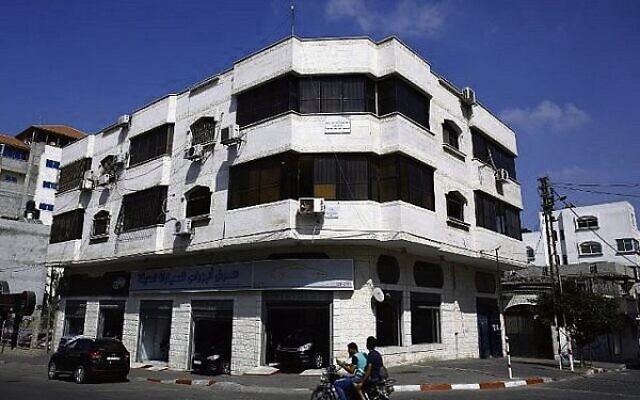
But even if one questions the integrity of the Israeli court system, the overwhelming body of publicly available evidence points convincingly to El Halabi’s guilt. To begin with, he confessed to funnelling large amounts of money and materials for use by Hamas. In fact, he confessed to two separate times to two separate parties and both times cited similar relevant details. In the words of the Beersheba District Court, the confession “presents a logical, coherent story, which is interwoven with many details, from different time points and involves many people, with different roles and has an affinity for security incidents that occurred in the past and unlikely that the defendant fabricated them while confessing to them, had they not actually occurred”.
It was only after both confessions that El Halabi’s lawyers sought to withdraw his testimony, claiming that his confessions were made “under duress” and that his interrogators “beat him a lot”. If the lawyers offered any evidence to back their torture allegation, it has not been made public.
There are other key sources of information. As reported not long after his arrest, a local World Vision accountant, Mohammed Mehdi, blew the whistle on El Halabi leading to his arrest in the first place. In a complaint before the court, Mehdi “described the operative mechanisms that the defendant used which were consistent with the operative mechanism [described by El Halabi]”.
Moreover, Mehdi’s experience raises questions about World Vision’s methods. The El Halabi verdict questions “the circumstances of the dismissal of Mohammed Mehdi”, saying it lends credence to El Halabi’s confession. El Halabi’s lawyers sought to portray Mehdi as a disgruntled former employee.
The overwhelming body of publicly available evidence points convincingly to El Halabi’s guilt. To begin with, he confessed to funnelling large amounts of money and materials for use by Hamas.
Unsurprisingly, having blown the whistle on a Hamas operative, Mehdi was interrogated by Hamas.
And a copy of Mehdi’s interrogation was found on El Halabi’s personal computer after his capture. It is difficult to imagine an innocent explanation for this fact that would not strain credulity. But Mehdi is not the only witness against El Halabi. There were 35 individuals available to give testimony against him.
There are essentially three major, substantive claims made by the World Vision to discredit the case against El Halabi: a) its entire Gaza budget was significantly smaller than the sums El Halabi was supposed to have stolen; b) various audits of World Vision programs came back clean; and c) its controls are so tight that nobody could ever divert money to terrorism in the first place.
According to World Vision, its entire Gaza budget in the decade preceding El Halabi’s arrest had been $22.5 million, hence allegations that he stole $50 million are “hard to reconcile”. But this claim omits several key facts, not least that the $50 million figure comes from El Halabi’s own confession. In the words of the court: “It should be remembered that the defendant told in his confession about the financial assistance he gave to Hamas retroactively and without having before him [relevant documentation] … he did not remember the exact amounts. Nor do we rule out the possibility that the defendant “inflated” the sums to boast of his achievements and assistance to Hamas.”
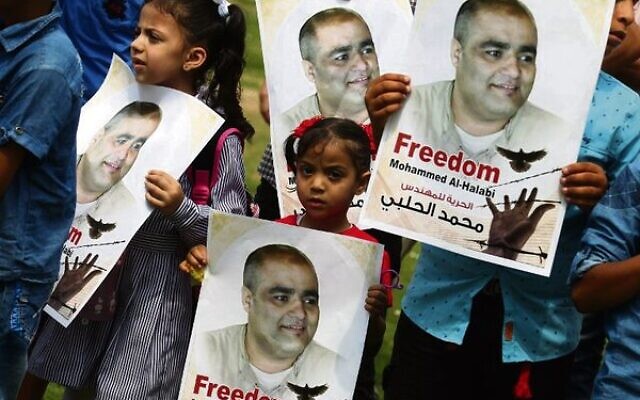
Indeed, the amount is not legally relevant. It is sufficient to prove that El Halabi provided funds to Hamas.
While courts are confined to the facts presented to them, there could be other reasons why the figure was so high. As one watchdog group pointed out, there are multiple chapters operating under World Vision’s auspices and that “Jerusalem–West Bank–Gaza” (JWG) does not exist as a separate financial and legal entity. According to the Registrar of Non-Profits, Israel’s charities’ regulator, there is an Israeli World Vision entity with offices in Jerusalem whose relationship with the JWG office “is entirely unclear, they do apparently overlap to some degree.”
As such, it is possible that multiple funds fed El Halabi’s thefts.
Hanna Weiss, an enterprising local reporter for a small outlet in Israel, using World Vision public data posted online, explained that the real figure the organisation spent in Israel and the JWG area was likely far higher than $22.5 million. For example, a 2013 financial report for “Jerusalem–West Bank–Gaza” that cites 11 separate funding streams with over $18 million spent that year alone. A similar 2014 financial report that expended a total of $16 million that year. A 2015 report cited $10.7 million being spent on “Jerusalem–West Bank–Gaza” endeavours. That’s $45 million in just those three years, far more than the $22.5 million World Vision claims to have spent over a decade. Extrapolating these figures would lead to spending roughly $142 million. This dynamic was confirmed when the Israeli organisation NGO Monitor obtained further financial documents from the years in question as well as previous years. World Vision has not even attempted to explain these seeming contradictions.
The problems go deep. As early as 2014, Israel’s Registrar of Non-Profits sent a warning that World Vision had failed to comply with transparency regulations. Seven years later the registrar asked a Jerusalem district court to dissolve World Vision’s Israeli arm following an audit that found rampant non-compliance with various laws ensuring financial transparency.
A copy of the registrar’s audit shows severe problems of transparency and accountability in World Vision’s finances. An Australian reporter obtained one document filed by World Vision’s Israeli operation with the registrar which included such items as $145,905 for “transformed relationships”, $36,724 for “drawing a smile on children”, $173,387 for “special gifts reserve” and $142,955 for “South Gaza empowered children”. One need not be a forensic accountant to see such funds might actually be used to fund terrorism in a place like Gaza.
World Vision’s other substantive claim is that multiple audits have vindicated El Halabi. This is simply untrue, yet it has been relentlessly pushed by World Vision’s PR team.
As previously alluded to, the largest funder of World Vision’s projects in Israel (as far as can be known given the organisation’s opaque accounting) is AusAid. When the El Halabi trial began, Australia’s Department of Foreign Affairs and Trade conducted a review. According to many media reports, the review found no evidence that El Halabi had diverted funds.
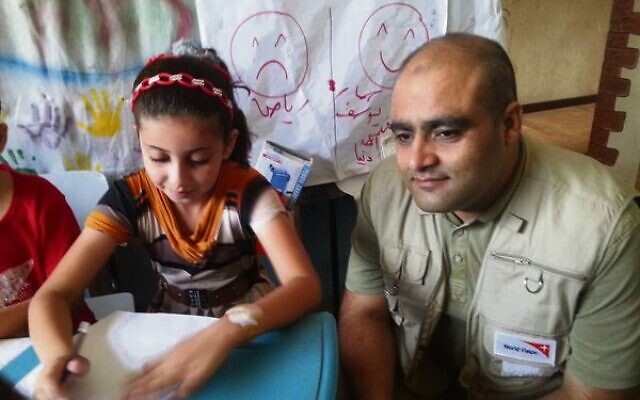
But this was a gross distortion. Australia’s ambassador to Israel clarified that the review found only that the Australian government had no “awareness” of any wrongdoing by El Halabi. In other words, the review vindicated AusAid, not El Halabi, and left the final say on El Halabi to the Israeli courts. The ambassador stressed that Canberra was still withholding all funds to World Vision. Unfortunately, this clarification has not stopped endless “no diversion” claims by World Vision.
World Vision frequently boasts annual audits by the internationally renowned firm PricewaterhouseCoopers, which it claims prevent the possibility of funds diversion.
It also ordered its own, separate audit in response to El Halabi’s arrest, which it claimed, “found no evidence of diversion of funds and no material evidence that El Halabi was part of or working for Hamas.”
In his testimony, El Halabi noted the World Vision audits clearing him, but the organisation refused to submit its own audits for evidence, citing Israel’s failure to sign the non-disclosure agreement. Thus, the audit itself was never released: not to the public, nor even to the court.
In spite of all this, World Vision remained adamant there was no way its audit mechanisms would allow the organisation’s money to flow to Hamas. This is not the stance of an organisation doing any meaningful reflection. The Israeli court found these claims hopelessly naïve, damning.
As long as World Vision does not acknowledge this reality and continues to operate in conflict-heavy areas, its aid programs are likely to fund terrorist activities on occasion. It is, therefore, incumbent on Australians to let the organisation know they will not tolerate this behaviour.
Clifford Smith is the director of the Washington Project of the Middle East Forum. This article is an edited version of “World Vision, friend of terrorists,” which first appeared in the Middle East Quarterly. It can be read in its entirety at meforum.org/64207/world-vision-friend-of-terrorists.

comments